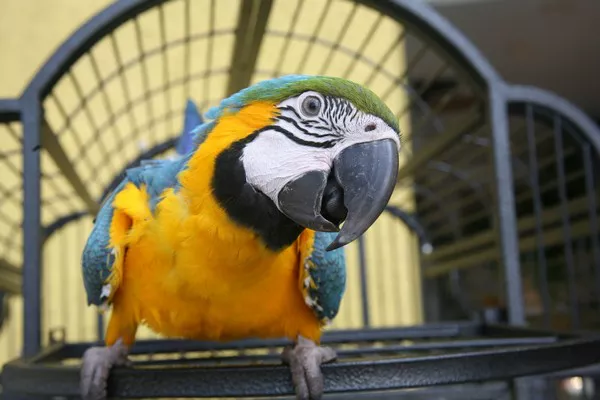The American Foxhound is a noble breed of dog with a rich history. Known for its speed, agility, and keen sense of smell, this breed has earned its place as a beloved companion and a skilled hunter. As potential pet owners or people interested in this dog breed, understanding how long an American Foxhound can live is an important factor when deciding whether this dog will be a good fit for your family. In this article, we will explore the life expectancy of American Foxhounds, what factors affect their lifespan, and how to ensure that your Foxhound lives a long, healthy, and happy life.
The American Foxhound is an all-American dog breed that was developed in the 18th century. Known for its strong hunting instincts and friendly disposition, this breed is a favorite among hunters for its ability to chase and track game. These dogs were bred to be fast, efficient, and agile, making them excellent trackers for fox hunting. Though they are often associated with outdoor activities, American Foxhounds can also be affectionate and loyal pets when properly trained and cared for.
American Foxhounds are medium-sized dogs with a sleek coat, long legs, and a muscular build. They are often described as friendly, independent, and energetic. These dogs are active and need plenty of exercise to stay healthy and happy, making them best suited for active families or individuals with space for them to run.
Average Lifespan of an American Foxhound
The average lifespan of an American Foxhound is around 12 to 15 years. This range is typical for medium-sized dogs, although individual Foxhounds may live longer or shorter lives depending on their genetics, lifestyle, and overall health. Like all dogs, Foxhounds age at different rates, and their lifespan can vary based on factors such as diet, exercise, medical care, and environmental influences.
While the breed as a whole tends to live well into their teenage years, some dogs may experience age-related health issues earlier than others. It is important to be aware of common health concerns for the breed, as well as preventative care practices to extend their life expectancy.
Factors That Affect the Lifespan of an American Foxhound
Several factors play a role in how long an American Foxhound can live. Genetics, lifestyle, and health care are among the most influential. Below, we break down the main factors that contribute to the overall lifespan of your American Foxhound.
1. Genetics
Genetics is one of the most significant factors influencing the lifespan of an American Foxhound. Just like with humans, dogs inherit traits from their parents that can affect their health and longevity. Dogs with strong, healthy genes tend to live longer, while those with genetic predispositions to certain diseases may have shorter lifespans.
When choosing an American Foxhound, it is important to select a breeder who focuses on health and genetic soundness. Ethical breeders test their breeding dogs for common hereditary health problems and work to reduce the risk of passing on genetic conditions that could affect the dog’s quality of life.
2. Diet and Nutrition
A balanced diet plays a critical role in maintaining the overall health of an American Foxhound. Proper nutrition helps to ensure that they grow and develop properly and that their body functions optimally as they age. Feeding them high-quality dog food that is formulated for their specific age, size, and activity level is essential.
American Foxhounds are active dogs, so they require a diet that supports their energy needs. A well-balanced diet should include high-quality protein, healthy fats, fiber, vitamins, and minerals to promote healthy bones, muscles, and coat.
It is also important to monitor the dog’s weight and adjust their food intake accordingly. Overfeeding can lead to obesity, which can reduce lifespan and increase the risk of developing other health problems, such as joint issues, diabetes, and heart disease.
3. Exercise and Activity Level
American Foxhounds are high-energy dogs, and they need plenty of physical exercise to stay healthy. They were originally bred to hunt, so they have an innate desire to run and explore. If your Foxhound is not provided with enough exercise, it can lead to boredom, anxiety, and behavioral issues. A lack of exercise may also contribute to obesity, which can shorten their lifespan.
Regular exercise helps maintain a healthy weight, strengthens muscles, improves cardiovascular health, and keeps the mind sharp. Foxhounds enjoy outdoor activities such as running, hiking, and playing fetch. Providing them with opportunities to run and explore in a safe and secure environment will promote a long, healthy life.
4. Medical Care and Preventative Health
Routine medical care is vital for the health and well-being of any dog, including the American Foxhound. Regular checkups with a veterinarian can help detect early signs of illness, prevent diseases, and manage any existing conditions. A healthy Foxhound is more likely to live a longer life, so investing in regular veterinary visits is essential.
Vaccinations, flea and tick prevention, and heartworm medication are all part of a comprehensive health plan for your Foxhound. Regular dental care, such as teeth brushing and professional cleanings, is also important to prevent dental disease, which can lead to more serious health problems.
5. Living Environment
The environment in which an American Foxhound lives can have a significant impact on their lifespan. Foxhounds thrive in environments where they have room to move and explore. While they can live in smaller homes or apartments, they are better suited to homes with yards or access to safe outdoor spaces.
Because they are highly active dogs, Foxhounds may not do well in environments where they are confined to small spaces for long periods. Lack of space and mental stimulation can contribute to stress and anxiety, which can shorten a dog’s life. Ensuring that your Foxhound has room to run, play, and explore is important for their mental and physical health.
6. Socialization and Mental Health
American Foxhounds are known for their friendly and independent personalities. While they can form strong bonds with their families, they also tend to be independent and sometimes aloof. However, they generally do well with other dogs and pets if properly socialized from a young age.
Socialization is important not only for the dog’s happiness but also for their overall well-being. Foxhounds that are not properly socialized may develop behavioral problems such as fear or aggression, which can affect their quality of life and shorten their lifespan.
Mental health is just as important as physical health for a Foxhound. Keeping them engaged with toys, puzzles, and training sessions can help prevent boredom and anxiety. A mentally stimulated dog is more likely to live a long, happy life.
Common Health Issues That Affect the Lifespan of American Foxhounds
Like all dog breeds, American Foxhounds are prone to certain health conditions that can affect their lifespan. Understanding these conditions and taking preventative measures can help you care for your Foxhound and increase the chances of a long, healthy life.
1. Hip Dysplasia
Hip dysplasia is a common condition in many dog breeds, including the American Foxhound. It occurs when the hip joint does not develop properly, leading to joint instability and arthritis. Dogs with hip dysplasia may experience pain, lameness, and difficulty moving.
Regular veterinary checkups can help detect hip dysplasia early, and treatment options such as medication, physical therapy, or surgery can help manage the condition. Maintaining a healthy weight and providing regular exercise can also help prevent or reduce the severity of hip dysplasia.
2. Obesity
Obesity is a growing concern for many dog breeds, including the American Foxhound. Being overweight can increase the risk of developing joint problems, heart disease, and diabetes. It can also shorten a dog’s lifespan.
American Foxhounds are active and need plenty of exercise to stay healthy. However, they are also prone to overeating if not monitored. Keeping your Foxhound at a healthy weight through proper diet and regular exercise is essential to preventing obesity-related health issues.
3. Ear Infections
American Foxhounds have long, floppy ears that can trap moisture and debris, making them prone to ear infections. If left untreated, ear infections can lead to pain, hearing loss, and other complications.
To prevent ear infections, regularly check and clean your Foxhound’s ears. Use a veterinarian-approved ear cleaner to remove dirt and wax buildup. If your dog shows signs of an ear infection, such as scratching at the ears or shaking their head, consult your veterinarian for treatment.
4. Heart Disease
As with many larger dog breeds, American Foxhounds are susceptible to heart disease, particularly conditions like dilated cardiomyopathy, where the heart becomes enlarged and cannot pump blood efficiently.
Regular veterinary exams that include heart checks are essential for detecting heart disease early. If diagnosed, treatment options such as medication and lifestyle changes can help manage the condition and improve quality of life.
How to Extend the Life of Your American Foxhound
While genetics plays a significant role in how long your Foxhound will live, there are many things you can do to help your dog live a long, healthy, and happy life. Here are some tips to ensure your American Foxhound lives its fullest life:
Provide regular exercise: Make sure your Foxhound gets enough physical activity to maintain a healthy weight and strong muscles.
Feed a balanced diet: Choose high-quality dog food that meets the nutritional needs of your Foxhound.
Schedule regular veterinary visits: Regular checkups and vaccinations will help detect and prevent health issues early.
Practice good dental care: Brush your dog’s teeth regularly and have them professionally cleaned when necessary.
Socialize and train your dog: Proper socialization and training can help your Foxhound develop into a well-adjusted, happy pet.
Provide a safe, stimulating environment: Ensure your Foxhound has access to space where they can run, play, and explore.
Conclusion
The American Foxhound is a wonderful breed with an average lifespan of 12 to 15 years. By providing proper care, nutrition, exercise, and regular veterinary attention, you can help your Foxhound live a long and healthy life. While their independent nature and energetic personality make them unique, their love for family and strong hunting instincts make them a loyal companion. By following best practices in pet care, you can ensure that your American Foxhound enjoys a fulfilling life for many years to come.
Related Topics:





















